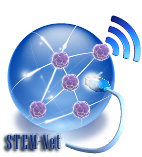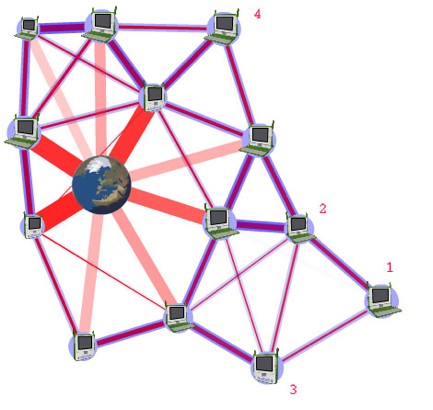Participation to IT/EU Research Projects
 [BRIC 2018 MAC4PRO project, 2019-]
[BRIC 2018 MAC4PRO project, 2019-]
The MAC4PRO project (founded by INAIL under the call BRIC 2018)
will develop civil engineering and ICT solutions for the structural health monitoring and predictive maintanance of industrial sites and civil
buildings via IoT approaches. Specifically, the research unit at DISI@UNIBO will focus on the design and implementation of a Web of Things (WoT) based
platform for the seamless data acquisition and processing from heterogeneous sensor devices for the structural health monitoring, and the remote sensor management.
 [EU ARTEMIS Arrowhead tools project, 2019-]
[EU ARTEMIS Arrowhead tools project, 2019-]
The Arrowhead Tools project
aims for digitalisation and automation solutions for the European industry, which will close the gaps that hinder the IT/OT integration by introducing new technologies in an open source platform for the design and run-time engineering of IoT and System of Systems.
The project will provide engineering processes, integration platform, tools and tool chains for the cost-efficient development of digitalisation, connectivity and automation system solutions in various fields of application.
 [Alma Idea Senior BEE-DRONES project, 2017-2020]
[Alma Idea Senior BEE-DRONES project, 2017-2020]
The BEE-DRONES project (founded by the University of Bologna under the call AlmaIdea Senior 2017)
addresses the design and deployment of ultra-low power wireless sensor networks based on the utilization of ground wake-up radio devices
able to harvest energy from Unmanned Aerial Networks (UAVs). To this purpose, the research activities include extensive measurement campaigns
of wake-up radio devices (developed by the joint UNIBO-STM labs), hardware/software integration, design of novel communication schemes and path-planning algorithms,
modeling and simulation of large-scale UAV-aided wake-up radio based sensor networks.
 [EU H2020 SWAMP project, 2017-2019]
[EU H2020 SWAMP project, 2017-2019]
The Smart Water Management Platform project
will develop a high-precision smart irrigation system concept for agriculture 3.0 scenarios. The main idea is to enable the optimisations of irrigation, water distribution and consumption based on a holistic analysis that collects information from all aspects of the system including even the natural water cycle and the cumulated knowledge related to growing particular plants. It results to savings to all parties as it detects all the leakages and losses and guarantees better the availability of water in situations where water supply is limited.
 [EU ARTEMIS ARROWHEAD project, 2013-2017]
[EU ARTEMIS ARROWHEAD project, 2013-2017]
The Ahead of the Future project addresses efficiency and flexibility at the global scale by means of collaborative automation for five application verticals. That means production (manufacturing, process, energy),
smart buildings and infrastructures, electro-mobility and virtual market of energy. The project includes industry companies and universities coming from fifteeen different EU countries.
 [EU ARTEMIS IoE project, 2012-2015]
[EU ARTEMIS IoE project, 2012-2015]
The Internet of Energy for Electric Mobility project aims at the definition and deployment of novel services for the electric mobility scenario. Based on standardized information, sensor exchange information to provide data to the end users, like the occupation of charging station, which enables the development of mobile applications and web services useful for the daily
driving routine. The project includes industry companies and universities coming from ten different EU countries.
 [National Project PRIN-2009 STEMNET, 2011-2013]
[National Project PRIN-2009 STEMNET, 2011-2013]
The STEMNET project ("STEM" devices for self-organizing wireless networks) aims at the design and deployment
of highly-reconfigurable wireless devices, called "stem devices", which, like their biological counterparts (i.e. stem cells), are able to fuilfill multiple tasks based on the characteristics of
the environment and on the requirements of the applications. The reference scenario is constituted by emergency and post-distaster environments where the existing wireless infrastructures are partially or completely damaged, and hence backup communication systems
must be set-up dynamically. The project investigates techniques for radio reconfigurability based on the utilization of Cognitive Radio (CR) technologies, and position reconfigurability via drones and ground robots.
 [National Project PRIN-2006 NADIR, 2007-2009]
[National Project PRIN-2006 NADIR, 2007-2009]
The NADIR project ("STEM" devices for self-organizing wireless networks) aims at the design and Design and Analysis of cross-layered, distributed and QoS-aware protocols and algorithms for multi-hop Wireless Mesh Networks. Such infrastructures have been recently devised to allow mobile users an ubiquitous, QoS-based access to various networks, such as the Internet, or metropolitan networks, or corporate networks of private and public companies.